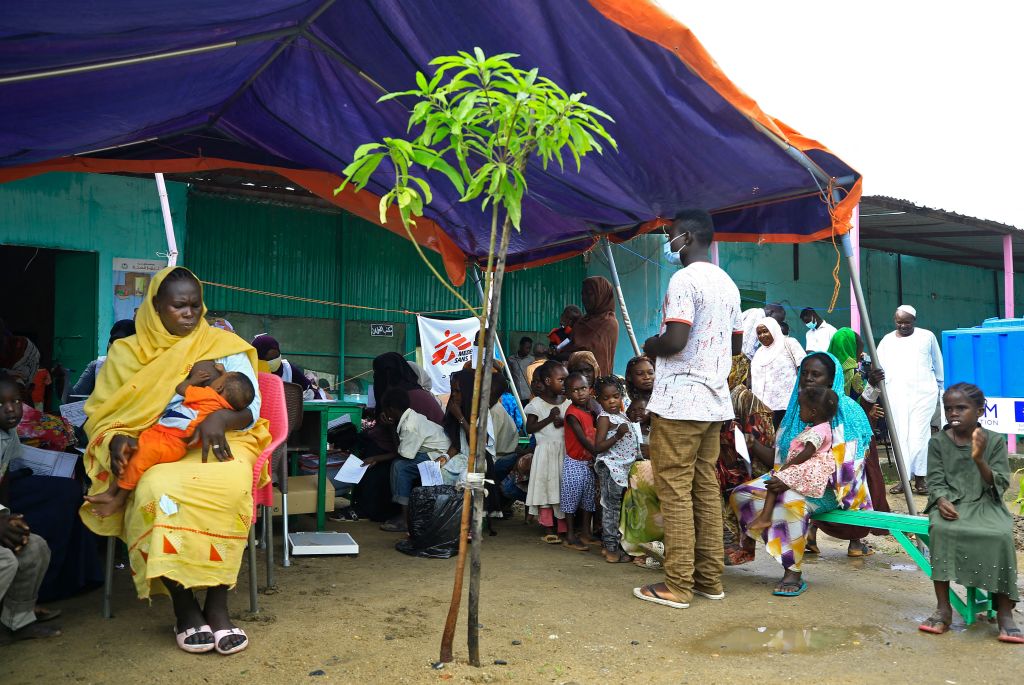ADF STAFF
As both sides of Sudan’s civil war fight to control el-Fasher, the besieged capital of North Darfur, the city’s hospitals and patients are in the crossfire.
El-Fasher’s last functioning public hospital, Saudi Hospital, was struck by a bomb on Aug. 11 that wrecked its surgical unit and damaged its maternity ward. Five patients and one staff member died in the attack.
“(The) attack on Saudi Hospital – which is the largest hospital in North Darfur state – makes it crystal clear that the warring parties are making no efforts to protect health facilities or the civilians inside them,” Michel Olivier Lacharité, head of emergency operations for Médecins Sans Frontières (MSF), said in a statement. “Patients fear for their lives as a result of the relentless attacks.”
The August attack was the fourth attack on the Saudi Hospital and the 11th assault on el-Fasher’s medical infrastructure since the Sudanese Armed Forces (SAF) and Rapid Support Forces (RSF) escalated their battle for North Darfur in May. The state, which remains in the government’s hands, is the only one of Darfur’s five regions not under the RSF’s control.
At the time of the attack, Saudi Hospital was treating more than 100 people wounded by fighting the day before. The bombing left the hospital barely functional, according to MSF.
Lacharité said MSF treated more than 2,500 people injured by three months of continual shelling from both sides of the battle. More than 370 of those MSF patients died from their injuries.
Hospitals and medical facilities across Sudan have found themselves caught up in the war between the SAF and RSF. The World Health Organization (WHO) estimates that 82 Sudanese medical facilities have been attacked since fighting began in April 2023.
On Aug. 9, RSF forces shelled the Omdurman Maternity Hospital one day after it reopened after being under the RSF’s control for many months. The area around the hospital is now in the SAF’s hands.
Sudan has a history of attacks against doctors and medical personnel, particularly since the 2018 protests against then-leader Omar al-Bashir. Following the 2021 coup that ended Sudan’s transition to civilian rule, doctors were tortured or disappeared after providing care to people protesting the military’s takeover, according to researchers Rawa Badri and Iyas Dawood.
The current attacks on health care facilities coincide with disease outbreaks including cholera, malaria, and meningitis. Both sides of the war have blocked WHO, MSF and other aid organizations from bringing supplies into the contested areas.
The attacks on hospitals began soon after fighting erupted between the SAF and RSF. The RSF placed armed fighters, vehicles, and anti-aircraft weapons around Khartoum’s East Nile Hospital early in the war. The SAF targeted the hospital with an airstrike on May 1.
Fighters also attacked ambulances in Khartoum as they delivered patients to hospitals. The SAF bombed the Doctors Hospital in Khartoum, destroying the building and medical equipment.
Those few hospitals that survived strikes and occupation early in the war lost power when their generators exhausted their fuel. In East Darfur’s Eld’aeen Hospital 30 newborns died because of issues related to electricity and oxygen, according to Badri and Dawood writing in the journal Conflict and Health.
The attacks in el-Fasher appear to be part of an RSF strategy to cripple North Darfur’s ability to care for its sick and wounded. In July, Darfur’s governor, Minni Minawi, who has allied his militia with the SAF, reported on social media that the RSF had destroyed a private hospital near el-Fasher’s Grand Market and hit the public Jabal Marra Hospital less than an hour later.
Indiscriminate shelling by both sides in the battle for el-Fasher has damaged or destroyed the city’s dialysis center along with South Hospital and several private medical centers. RSF forces are accused of plundering the damaged buildings of equipment and supplies.
As the scale of suffering among Sudan’s non-combatants mounts, medical experts are calling for both sides to stop targeting the country’s health care system.
“Warring parties must halt attacks on medical care,” Lacharité said in a statement. “Hospitals are closing. Remaining facilities can’t handle mass casualties. We are trying to find solutions. The responsibility is on warring parties to spare medical facilities.”

